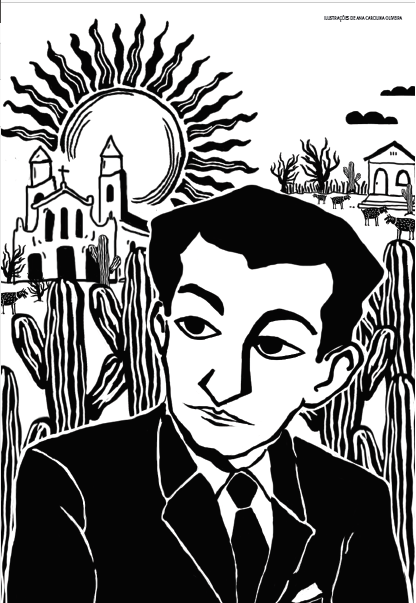Panoramic View on the World Economy
The international situation is not only affected by the conflict in Ukraine and the end of the “zero COVID” policy recently adopted by China, other geostrategic factors and regional and international financial and economic policies condition the growth of advanced global economies thus creating a cascade of recessionary movements undermining the bases of the transfer of added value between the companies forming and supplying the added value chain.
New Paradigm of the Chinese Economy and Its Consequences
China anticipated the advent of the Water Rabbit New Year to stimulate consumption during the celebration period in order to erase the contraction experienced in 2022 in terms of growth. According to figures from the National Bureau of Statistics of China published Tuesday January 17, 2023, growth would be 3% in 2022 far from projections of +5.5%. This rate is the lowest level since the 1970s. The watchwords are “Stability and Reforms” with which China is trying to attract national and international investors and restore confidence in the economic future of the country.
As for the United States, there is a deluge of mass layoffs in all high-tech sectors and especially in services. The flagship tech companies no longer hide their dismay, taking advantage of an environment of international conflict and national recession, they are leading the fight against the tendencies of union mobilization that workers wanted to form as a defense against the erosion of their powers. purchase and their rights. The response is solidarity from companies which until now have been protected against the effects of the crisis. So, it is not surprising that on Wednesday January 4, 2023, Amazon plans to lay off 18,000 employees, Microsoft and others. This surge was thus unmasked and started by the bankruptcies of Startups and especially by the fraudulent manipulations of the Crypto Assets sector which contributed to the materialization in 2022 by Wall Street of its worst year since 2008: the S&P 500, the index of the 500 main listed companies, fell by 20%.
At the same time, continued inflation tends to erode the purchasing power of the most disadvantaged and affects the employment of the poorest. Given that the fight against inflation involves reducing wages, this paradoxical situation makes the acceptance of all working conditions acceptable in the sectors by poor workers without union protection. Productivity will be affected as will job stability, weakening recovery efforts and employment in low-income service sectors on the economic and industrial scale.
At the same time, financial support for Ukraine and other contingency budgetary expenditures have caused the federal debt ceiling to be reached, which currently stands at $31.4 trillion, on Thursday, January 19, 2023, this debt level is of around 120% of GDP, according to government figures.
As a result, the United States will be characterized by the continuation of the recession and by a period of economic slowdown. The stimulation of military spending on rearmament, the race for the sophistication of new weapons and arms exports as a form of recycling of old weapons are thus considered as temporary remedies while the real problems are contained and integrated into the distribution of wealth and the glaring inequality in the sharing of the benefits of economic growth. On the other hand, the effects and consequences of stagflation and recession are distributed generously without borders among the working social classes.
Proposal for the Creation of “InterAfrican Social Community Bank of Reconstruction”
With Disaster after Disaster, Insecurity, Institutional Instability, Rising Unemployment, Rising Crimes, Corruption, Nepotisme, Spoliation of Rights of Private Ownership and Persecution of Activism and Political Opposants and So On, Africa Needs “InterAfrican Social Community Bank of Reconstruction” to replace the African Development Bank (AfDB)
by Said El Mansour Cherkaoui
Summarized Definition of Actions and Interventions for the “InterAfrican Social Community Bank of Reconstruction”
The prototype model used for the creation of the “InterAfrican Social Community Bank of Reconstruction” is based on research I have conducted within the CREDAL Laboratoire 111 associated with the Centre National de la Recherche Scientifique – CNRS with mentorship received directly from Celso Furtado who his own work and studies have effectively focused on the correction of the economic dualism and the structural imbalances that hurt the economic development. Celso Furtado used the direct reality of the century-old existence of marginalization and improvershipment that dominated and defined the economic destiny of the Northeast of Brazil to elaborate new concepts and theory of regional and national development. Note *
Celso Furtado and SUDENE, Superintendence and the Planning of Development for the Impoverished and Marginalized Regions by the International Investors and Marketplace
Celso Furtado; regional inequalities; Northeast (Brazil); SUDENE The contributions by Celso Furtado for the economic development was based and aiming to interpret and explain the determinants of regional inequalities and to the formulation of development policies for less developed regions.
Said El Mansour Cherkaoui on Latin America
Said El Mansour Cherkaoui on Latin America … Continue reading
While I was conducting research on Brazil with the advice of Celso Furtado in Paris, I realized that Brazil, through the recommendations of the World Bank, had in fact applied the first and already in the mid-fifties the same scenario and the same development strategy which was subsequently granted to Morocco by the same institution which resulted in the implementation of the import substitution program. As they say, we change the bottle, the labeling and the branding but the wine remains from the same source, even with a bitter taste given the time spent in the open air.
Said El Mansour Cherkaoui and Latin America

My Mentor and Thesis Advisor, Celso Furtado Said El Mansour Cherkaoui et Jacques Chonchol, my Thesis Director of Research Said El Mansour Cherkaoui ui on Latin America Publication on the Economic Development of Brazil at the Centre National de la Recherche Scientifique de Paris par Said El Mansour Cherkaoui:La relation ambivalente entre l’Etat fédéral et les…Lire la Suite → juin 13, 2022
Furtado overcomes the notion of region and begins to examine spatial structures; he introduces the central role of urban nodes, of their hierarchies and articulations; in other words, the role of the urban network in the command and structuring of the territory; of the central role of technology and innovation processes, and finally, of the need for an interdisciplinary effort for both understanding regional problems as well as for the formulation of policies and their implementation.
Said El Mansour Cherkaoui Research on the Development of Brazil
I worked with Celso Furtado in Paris when I was an Associate Researcher at the CREDAL and the Institut des Hautes Etudes de l’Amérique Latine at Paris. Celso Furtado was my mentor with Raymond Prats, Frederic Mauro and Jacques Chonchol. My research topic focused on the Intervention of the Brazilian States in the Economy.
My research on Brazil entitled: “La Relation Ambivalente entre l’Etat Fédéral et les Grands Groupes d’Intérêts Privés au Brésil dans la Première Moitie du XXeme Siecle” [voir document ci-dessus] was considered by Eminents Scholars and President of the Latin American Association in the United States of America as pioneered study in the World with the one conducted by Steve Topik. We were the first two Researchers that focus on such period of time with the State involvement in regulating the growth and development. Extract of this research was published by the Centre National de la Recherche Scientifique – CNRS.
In the orientation favored by Celso Furtado, I also focused on using a backdrop the theoretical antecedents and principal global experiences of regional development policies, which served as a reference for Celso Furtado.
The originality of Furtado’s innovation is that he linked questions of regional inequality with the nature of underdeveloped structures. using and also interceding the theoretical and empirical foundations in his analysis of the Northeast question. This approach helped Celso Furtado to establish guidelines for the future SUDENE and its interaction and confrontation with political pressures and the insufficiencies in the way development policies for the Northeast were carried out.
Celso Furtado was a Man of the Territory and the Field Research bringing to the academic and conceptual world, the harsh reality of the region disinherited and impoverished by centuries of voluntary neglect and exposure to the extraverted demand that was imprevisible and inconsistent.
Celso Furtado Fighting Regional Inequalities in the Northeast (Brazil) with SUDENE
A multiregional Superintendence of stimulating and increasing the outputs and the productivity of food staples along with the expansion of educational programs that favor and increase the social return and the individual empowerment of communities and self-reliance of tribes in African countries. No bank headquarters should be located anywhere, this institution needs to be located in the regions and near the communities that need its services, support, and orientation as well as investment in education.
Here below are details on the Investment on Education in Africa:
Read in the following listed link and the correspondent article where is presented our Proposal Educational Value to create and manage Entrepreneurial Training Programs and Institution: American Institute of Entrepreneurship in Africa dedicated to the rising and the growth of Entrepreneurship based on American Principles and Strategie of Creative Social Management.
Join our Group African – Moroccan Diaspora at Linkedin to access more on our publications on Africa African – Moroccan Diaspora
Additional Areas and domains of intervention
for the “InterAfrican Social Community Bank of Reconstruction”
- – Supporting fragile communities, regions, and ethnic minorities as well as their cultures and means of living
- – Strengthening local not export agriculture and guaranteeing through direct Research and Development to increase the transformation of saline waters and agricultural productivity without Chemical to build and assure FOOD SOVEREIGNTY of communities, regions, and ethnic tribes
- – To protect and promote the preservation of the most distinguished aspects and characteristics identities of their culture and means of living
- – Implementing Study and Educational Programs to increase literacy and to create jobs in accordance with this educational policy
- – Workforce Program Development adapted to the local economic socio-cultural and eco-financial conditions as well as the level of modernization conditions, see our training programs on Entrepreneurship at https://glocentra.com and / en Français: https://fr.glocentra.com
- – Stimulating trade and exchange of ideas and opportunities with other regions of the country to reduce the formation of enclaves and isolation
- The “InterAfrican Social Community Bank of Reconstruction” subscription to its capital should be from the State and transformed and vested in community ownership and the employee’s ownership to maintain the financial independence and the autonomy of the strategic management of this Superintendence.
- The “InterAfrican Social Community Bank of Reconstruction” mobilizes resources from within and outside of its spheres of action and operations.

Africa Destiny: Foreign Direct Investment
Updated by Said El Mansour Cherkaoui on August 26, 2023 – September 9, 2023 Morocco Solidarity: Support … Continue reading Africa Destiny: Foreign Direct Investment




